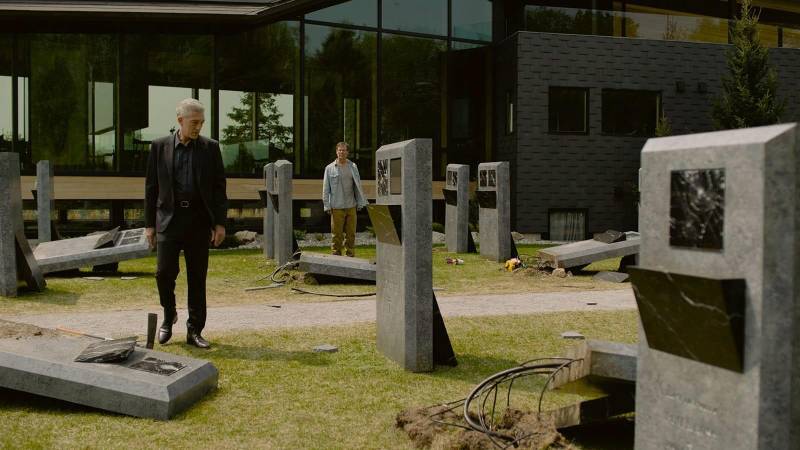To get to the bottom of the vandalism, Karsh enlists the help of Terry’s ex-husband, a computer whiz played by an unnervingly twitchy Guy Pearce. Karsh also relies on an AI personal assistant — voiced by, you guessed it, Kruger again — who doesn’t seem entirely trustworthy. There are whispers that the vandals are aligned with shadowy Russian and/or Chinese forces, hinting at a mass data-theft conspiracy that may or may not exist.
The Shrouds never fully coheres as a mystery; in the end, it’s an intriguing but not especially satisfying puzzle. I didn’t mind that about it; Cronenberg isn’t out to provide easy answers. He’s saying that we live in such a 24/7 internet fog now, who knows what could be out there, mining the most human and vulnerable parts of ourselves: our habits, our yearnings, our relationships. This isn’t a new theme for Cronenberg; he’s always been fascinated by the way technology alters our minds and even our bodies.
In his 1983 classic Videodrome, the director inserted a Betamax cassette into his protagonist’s torso, literalizing the idea of what TV is doing to us. The Shrouds isn’t nearly as graphic, but it doesn’t have to be; it’s set in a world where most of us have all but fused with our phones already. All of which is to say that this seemingly death-obsessed movie — about grief and desire, and the unsettling power of technology to assuage them — is also a movie about life and the way more than a few of us live now.
Copyright © 2025 Fresh Air, NPR


